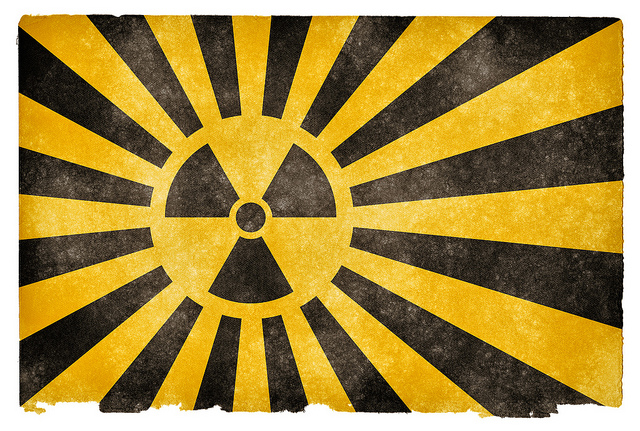Strategic policy, ANZUS and dealing with Trump
Posted By Rod Lyon on November 14, 2016 @ 14:30

On 20 January 2017, Donald Trump will be sworn in as America’s 45th president. I’m not expecting an immediate revolution in strategic affairs; his priorities will be unashamedly domestic. Indeed, like most politicians—who campaign in poetry and govern in prose—I suspect the new president will spend the first year getting on top of his portfolio and letting his appointees do the same.
The outpouring of vitriol that’s followed Trump’s election reflects in part the sudden disappointment of Clinton’s supporters shocked at the outcome. But Trump’s not Hitler or Mussolini; dictatorship hasn’t come to the US [1]; the republic isn’t dead [2], and neither is its Constitution. (For those wanting to ‘locate’ Trump in the vast gallery of US leaders, Walter Russell Mead’s depiction of Trump as a Jacksonian [3] is an interesting read.)
Trump’s a dealer. And, as P.J. Harvey once observed, dealers don’t live on the moral high ground [4]. So as president he won’t be much like Barack Obama. In foreign affairs he’ll be more of a politician and less of a statesman. In defence policy he’s already signalled [5] a preference for using force massively or not at all—a classic preference of military leaders rather than civilian ones.
But it’s already clear that ‘America First’ will be the long pole in Trump’s strategic tent. That’s his natural instinct, and it aligns with both the preferences of the US public [6], and an international structure of growing—if uneven—multipolarity. He’s not going to walk away from US alliances, least of all the ANZUS alliance which ties together three members of the close-knit ‘five-eyes community’. But he has put allies on notice that he expects them to carry more of their weight. And that leaves him an important and immediate task of assurance—convincing America’s partners that the US still has their backs. The dimensions of that challenge shouldn’t be underestimated.
It’s now not only possible but likely that the US will be absorbed in an agenda of ‘America First’ while large-scale strategic transformation plays out in Asia. That’s worrying, and not just for us. Indeed, our worries will probably seem trivial to US allies living closer to authoritarian great powers, or to risk-tolerant adversaries like North Korea. At a minimum, an America focused on domestic priorities will encourage Asian nations to hedge more intensively. At a maximum, it might lead to a cascade of nuclear proliferation both within and beyond the region [7], an event which would signal the death of the Non-Proliferation Treaty and render impotent any UN-led negotiations to ban nuclear weapons.
Why would nuclear weapons—the symbols of an earlier age of total war—suddenly look so appealing? Basically because there’s not a wide range of alternatives. Academics write a lot about the growing ‘webs’ of intra-Asian security cooperation—webs that are supposed to complement the hub-and-spokes ‘wheels’ of current US alliances—but in reality there’s less to multilateral security cooperation in Asia than meets the eye. Whatever cooperation does exist is clustered at the confidence-building end of the spectrum; actual agreements to come to each other’s aid in the event of an attack don’t exist.
Look at Australia’s own options. If we judged that the ANZUS treaty was becoming a less reliable guarantor of our security, where would we source new increments of security? From other US allies caught up in a similar predicament to our own? From other Asian middle powers, with whom we’d hope to make common cause in the future though we seldom did in the past? Well, yes, we might do a little more of each. But surely the conclusion we’d quickly come to would be that the fastest way to add serious strategic ballast to our own position would be through a small arsenal of, say, 20 nuclear warheads, plus a credible delivery vehicle. That Australia would look a whole lot less vulnerable to coercion than the Australia we have today. If we do think a ‘come-as-you-are’ war [8] is a real possibility in Asia, it’s an option even we might want to think about.
On the other side of the ledger, Trump might well be a driver for an era of US reinvigoration. That’d be good news—albeit over the longer term. Even Obama came to power promising to rebuild the US middle class. Back in 2009 he argued that a strong middle class had been the basis of US global dominance in the 20th century, and would be again in the 21st. But the US middle class didn’t recover under Obama—indeed, it shrank [9]. So, if Trump can pull that off, he’d chalk up some serious strategic kudos, as well as political and economic ones.
What’s our best strategic course? Well, ANZUS has no termination date. As Article X says, it’s meant to last indefinitely. So my money is on its still being there when Donald Trump’s presidency has come and gone. But we’d be wise to think through our other options for strengthening Australia’s position in a shifting regional order.
Article printed from The Strategist: https://www.aspistrategist.org.au
URL to article: https://www.aspistrategist.org.au/strategic-policy-anzus-dealing-trump/
URLs in this post:
[1] dictatorship hasn’t come to the US: http://www.newyorker.com/news/news-desk/an-american-tragedy-2
[2] the republic isn’t dead: http://nymag.com/daily/intelligencer/2016/11/andrew-sullivan-president-trump-and-the-end-of-the-republic.html
[3] depiction of Trump as a Jacksonian: http://www.the-american-interest.com/2016/01/17/andrew-jackson-revenant/
[4] dealers don’t live on the moral high ground: https://soundcloud.com/pjharvey/the-whores-hustle-and-the
[5] already signalled: http://www.cbsnews.com/news/donald-trump-massive-ground-force-may-be-needed-to-fight-isis/
[6] the preferences of the US public: http://www.aspistrategist.org.au/us-strategic-policy-public-opinion/
[7] a cascade of nuclear proliferation both within and beyond the region: http://www.wsj.com/articles/with-trump-asias-nuclear-crisis-expands-1478797800
[8] ‘come-as-you-are’ war: http://www.aspistrategist.org.au/the-come-as-you-are-war/
[9] indeed, it shrank: https://www.washingtonpost.com/news/wonk/wp/2016/05/11/the-middle-class-is-shrinking-just-about-everywhere-in-america/
Click here to print.